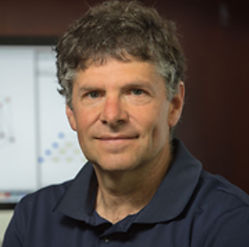
Canadian
Mathematical
Society

Michael Gekhtman

University of Notre Dame
Michael Gekhtman earned his Ph.D. in 1990 at the Institute of Mathematics of the National Academy of Sciences of Ukraine under supervision of Prof. Yu. M. Berezanskii.
Prior to joining the faculty of the University of Notre Dame in 1998, he held postdoctoral positions at the Weizmann Institute, University of Michigan and the College of William and Mary. In 2007 he became a full professor at Notre Dame where he also served as a department chair from 2013 to 2016. Over the years Gekhtman held visiting research professorships at the Max-Planck-Institut-Bonn, IHES, MSRI , RIMS, Institute Henri Poincaré, Isaac Newton Institute, CRM and University of Heidelberg.
He published more than 70 papers on integrable systems, orthogonal polynomial and , more recently, on the theory and applications of cluster algebras and, in particular, their interactions with Poisson geometry.
Generalized cluster structures
Saturday June 1, 2024 | 11am - 12pm
Cluster algebras were discovered by S. Fomin and A. Zelevinsky just over twenty years ago. They quickly found applications in various fields of mathematics and mathematical physics, including representation theory, combinatorics, higher Teichmüller theory, integrable systems and mirror symmetry. Generators of a cluster algebra are subdivided into overlapping subsets (clusters) of the same cardinality subject to certain polynomial relations (exchange relations). These are reminiscent of identities of classical mathematics - Ptolemy’s identity, short Plücker relations, Desnanot-Jacobi determinantal identities etc. In fact, all the aforementioned identities and their generalizations were instrumental in constructing cluster structures in rings of regular functions on many varieties of interest in Lie theory. It turns out, however, that the structure of exchange relations postulated in the original definition of a cluster algebra is sometimes too restrictive to include some natural and important geometric examples. The notion of a generalized cluster transformation allows one treat such examples while retaining key features of cluster algebras, such as the Laurent phenomenon.
I will discuss the definition and properties of generalized cluster transformations and examples of their occurrence in various contexts: surfaces with orbifold points, Poisson-Lie groups, periodic difference operators, cyclic symmetry loci in Grassmannians , and representations of quantum affine algebras at roots of unity.
Most of the talk is based on joint projects with M. Shapiro, A. Vainshtein, C. Fraser, K. Trampel and D. Voloshyn.